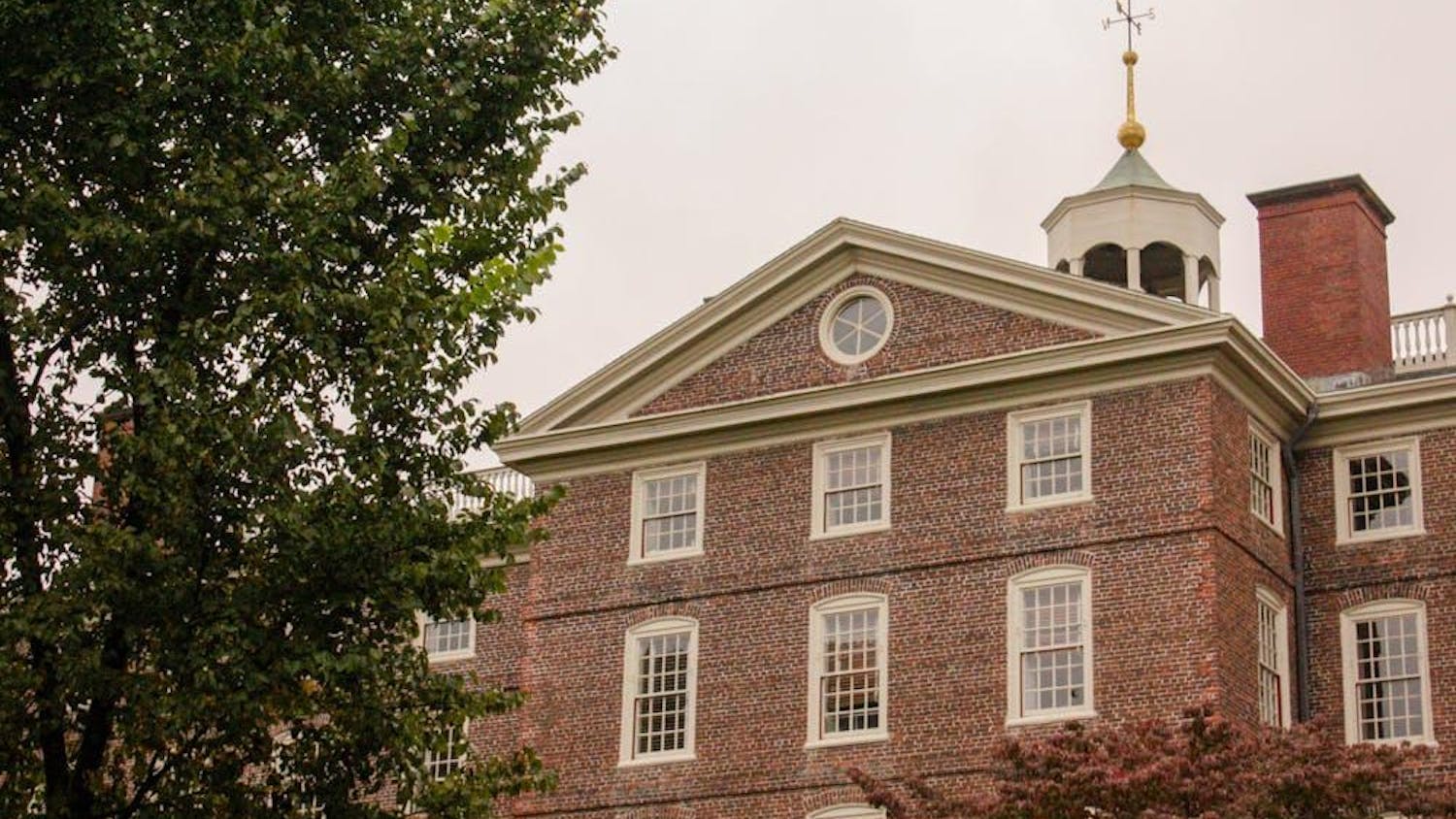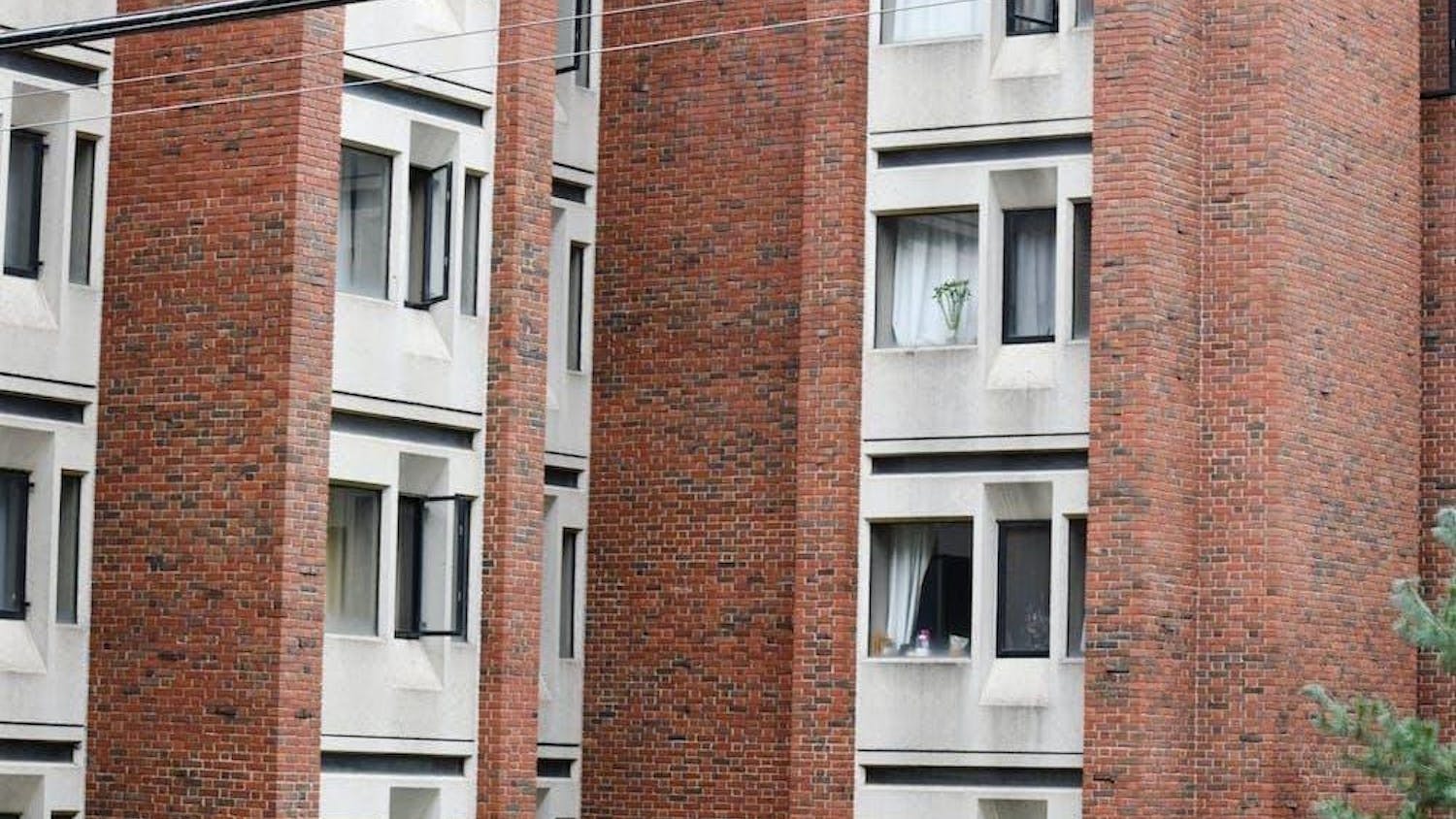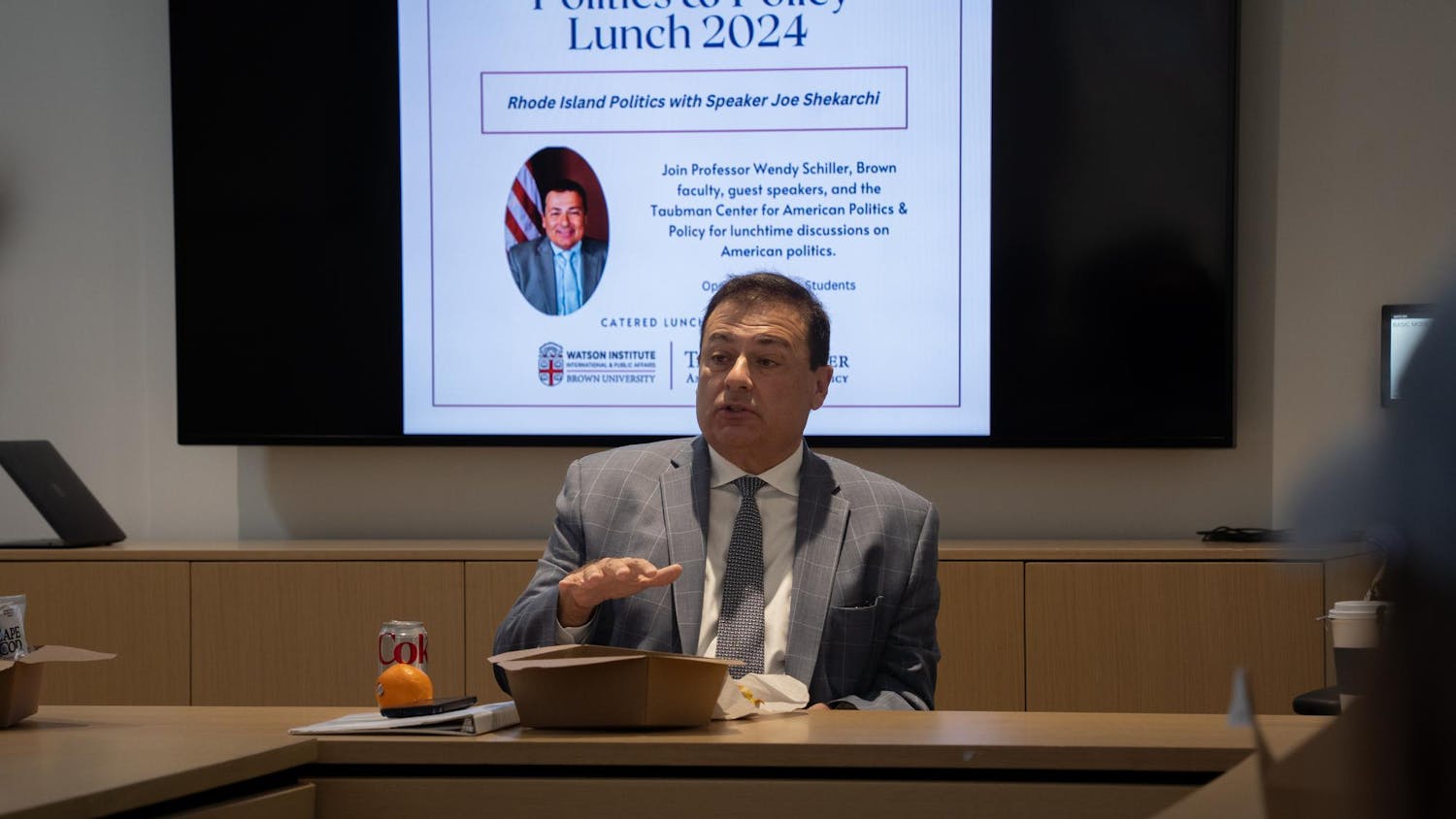On Tuesday, the Brown University Community Council discussed a working proposal to increase food and textbook aid for undergraduate students with the highest financial need.
The report, called “Enhancing Support for Students with Highest Financial Need,” was compiled after students approached administrators regarding the “hidden costs” of attendance, Provost Richard Locke P’18 said at the meeting.
The proposal aims to “increase the scholarship that we give students who have zero-dollar contribution from parents” in order to reduce the amount of money students are expected to contribute from their own earnings, Locke said. While many aid packages include a work component, summer earnings expection or both, some students have reported that they send some of these earnings home to their families — a scenario that is not accounted for in financial aid calculations. In certain cases, students then make up the difference by dropping down from the 20 meals a week plan to a lower option, exposing themselves to “issues of food security,” Locke said.
In addition, “we heard … that as we shut down cafeterias during the break, a number of students who didn’t go home for a variety of reasons were left without food,” Locke said.
Students have also reported using their allocated allowance for books to pay other bills, again due to insufficient aid, the report stated.
The proposal would have the 20 meals a week plan be mandatory for all first-year students, “so there won’t be any difference between students on need and not on need,” Locke said. The financial aid for those students would be adjusted to directly cover the 20 meals a week plan, according to the preliminary report. This proposal would mean that students could no longer drop to a lower meal plan in order to save money for other expenses.
To ensure students are able to purchase their textbooks, the University may pilot a prepaid card program for use in the bookstore, he added. “The idea is deal with the textbooks, deal with the food, deal with the anxiety around having this big bill,” Locke said. “We’re reducing the … earnings expectations of students by giving them more financial aid,” .
A task force would continue to explore other ways to fine-tune student financial aid, he added. The most recent draft of the proposal will be presented at the Undergraduate Council of Students general body meeting today for discussion.
This draft of the proposal has already garnered some student support. “We did hold three focus groups … open to all of our zero-parent-contribution students, and … close to 70 students participated. They were overwhelmingly in support of it and had questions about logistics” but on the whole “felt that it would help them focus even more on being students, especially in these transitionary periods of their first year,” said Vernicia Elie, assistant dean of the college for financial advising.
“This was an example of students coming forward, explaining some of their concerns (and) the University trying to work on responding to those concerns. Here’s a proposal, (and) it’s not an insignificant addition to our budget,” Locke said. In light of this expense, the University is collecting widespread feedback and ensuring that the proposal will achieve its objectives before moving forward.
“Coming from where I was as a first year, … these changes would be so critical for me,” said UCS president Chelse-Amoy Steele ’18. “A lot of attention should really be placed on low-income students who are underclassmen” specifically, she added.
The question of extending a similar proposal to encompass graduate student experiences was also raised. The future task force recommended by the proposal should also address aid for graduate students, said Chief of Staff to the Provost Marisa Quinn.
Following the discussion about the financial aid proposal, President Christina Paxson P’19 presented some data from a 2017 faculty resources survey, about which The Herald previously reported. Paxson described the results as an improvement when compared to responses from the same survey conducted in 2012.
The drop in satisfaction with diversity actually represents a positive shift in faculty appreciation for its value, Paxson said.
The survey showed “decreasing satisfaction with diversity, of faculty in particular and some of staff,” she added. “That’s really interesting, because we’ve actually made a lot of effort to increase diversity and we’ve made gains, especially among the faculty, also among graduate students and to some degree among staff.”
In 2016, the University released its Diversity and Inclusion Action Plan, which aims to increase the percentage of faculty from historically underrepresented groups.
“In 2012, non-HUG faculty members were pretty satisfied with the level of diversity, and members of historically underrepresented groups were not, so there was a bigger gap. What’s happened over time is that the non-HUG faculty have become less satisfied, and the HUG faculty have become more satisfied. In other words, the two groups are converging,” she explained. “I will claim that, not personally, but institutionally, as something of a victory, because I think what it shows is a group that maybe was a little bit more complacent than it should have been has learned something in the last five years, and to me that seems like a very, very good thing,” she added.
Paxson also discussed faculty members’ concerns about time management. Since the 2012 survey, the administration has established a post-tenure sabbatical and altered grant administration, among other changes. However, 2017 results reflect that time-shortage continues to be a struggle for faculty.
Paxson closed by noting “glowing” University commendations by the New England Association of Schools and Colleges. The accreditor also discussed a need to strengthen PhD programs.
The NEASC noted that the University’s economic growth has been fairly “aggressive,” Paxson added. There will be challenges “if there’s a major stock market downturn or something like that … We’ll slow down, but we’re not going to slow down unless we have to,” she said.




